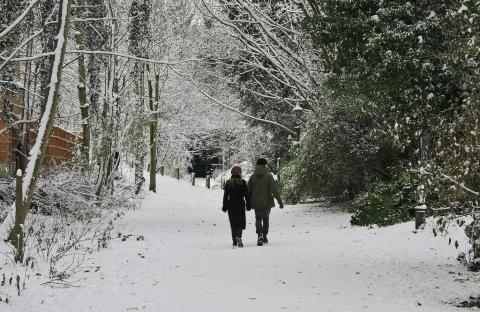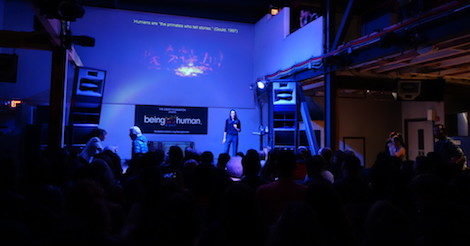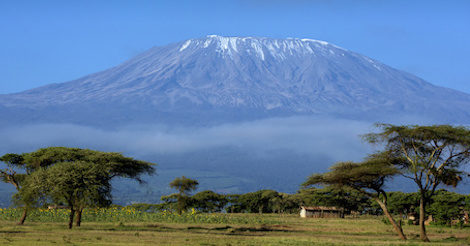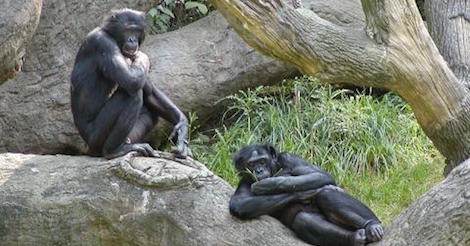Being Human
Gene expression modifies monogamy
This Being Human blog post was written by Caitlin Kirkwood.

With the first hint of a crisp cool autumn breeze, couples everywhere begin pairing off in a seemingly magical phenomenon known as cuffing season. Cuffing season, as defined by UrbanDictionary.com, is a yearly occurrence around the fall and winter months when normally promiscuous singles begin to look for serious relationships (becoming “cuffed” or tied down) due in part to colder weather creating a high propensity for canoodling indoors. Cuffing behavior is likely influenced by the weather and perhaps the dramatic increase in sappy, love-saturated jewelry commercials aired ad nausea around the holidays. However whimsical cuffing season may seem, true evolutionary and neurobiological causes underpin the many reasons why people enter into monogamous relationships.
Monogamy is not something that comes naturally to mammals. Mammalian males do not often take it upon themselves to stick around during long gestational periods and breast-feeding when they could be out-and-about looking for their next available mate to further propagate their genomic line. This notion of promiscuity is in congruence with Charles Darwin’s “survival of the fittest” evolutionary theory where the more seed you spread, the more likely you will have offspring to carry on your genes. But scientists think that despite the inclination for mammals to engage in casual sexual relationships, the evolutionary foundation of monogamy in human beings is likely based on protection, care, and survival of children.
In the largest study of its kind, 230 primate species from varying evolutionary lineages were examined to see how community mating habits influence monogamy. They found that male primates in non-monogamous communities would kill offspring in an attempt to persuade a female member to mate. In groups where males killed a particularly high number of infants, there would be a societal shift towards monogamy where males began to stay and protect their offspring from an assault. Over time males started caring for their young and in some cases monogamous relationships transcended the business-as-usual routine of childcare and protection becoming truly romantic endeavors. Gibbons, for example, are known to sing passionate duets with their lifelong partners.
Operating behind this drive to settle down, protect your children, and perhaps sing a jovial round of “Truly, Madly, Deeply” with your significant other are strong neurobiological factors that influence partner preference in the brain. To inquire into the mysteries of the heart and mind, researchers at Florida State University looked to the small, furry, love machines known as prairie voles for answers. Prairie voles are special rodents because they have a tendency to form enduring monogamous relationships thus making them an excellent model to study why we are attracted to our long-term partners. Researchers found that in these animals, monogamy is strongly influenced by subtle changes in DNA expression that influence the neurotransmitter love potion cocktail in the brain.
Normally, female prairie voles mate before forming a lasting partnership. However researchers replicated the act of mating-induced pair-bonding by applying particular pharmacological agents to the nucleus accumbens, a brain region involved in reward and pleasure, to single females. They found that DNA expression of particular genes that encode proteins involved in the signaling of so-called “love” neurotransmitters oxytocin and vasopressin were enhanced and the female voles selected a partner and spent significantly more time side-by-side touching their vole-mate rather than a stranger vole. What does this mean for the passion and poetry of love? Einstein famously quipped that gravitation is not responsible for people falling in love, but the factors that modify gene expression may in fact be partially responsible.
The science of monogamy is not an open and shut case. The debate is still going strong about the specific evolutionary origins of why we form lasting relationships and science is continuing to uncover the precise mechanisms behind partner selection in the brain. Since there is no magic love potion available, as the fall leaves turn and the first snow approaches try to keep the cuffing season anxieties in check. Always approach a potential cuffing situation with the utmost respect. Too strong of courting tactics may end in jail time and perhaps give cuffing season an entirely new meaning.


